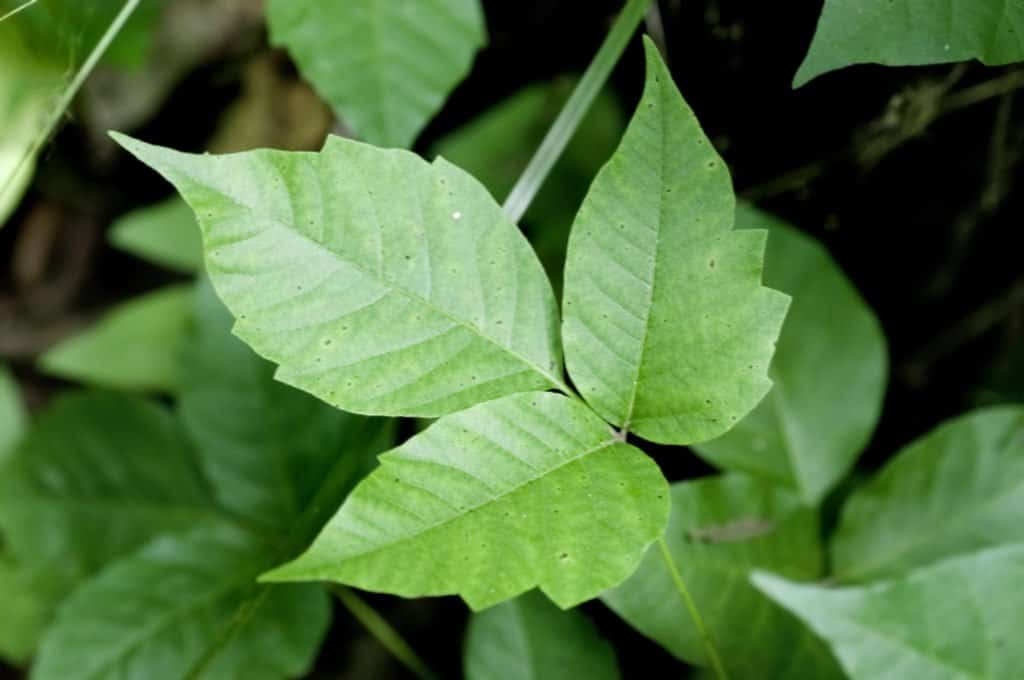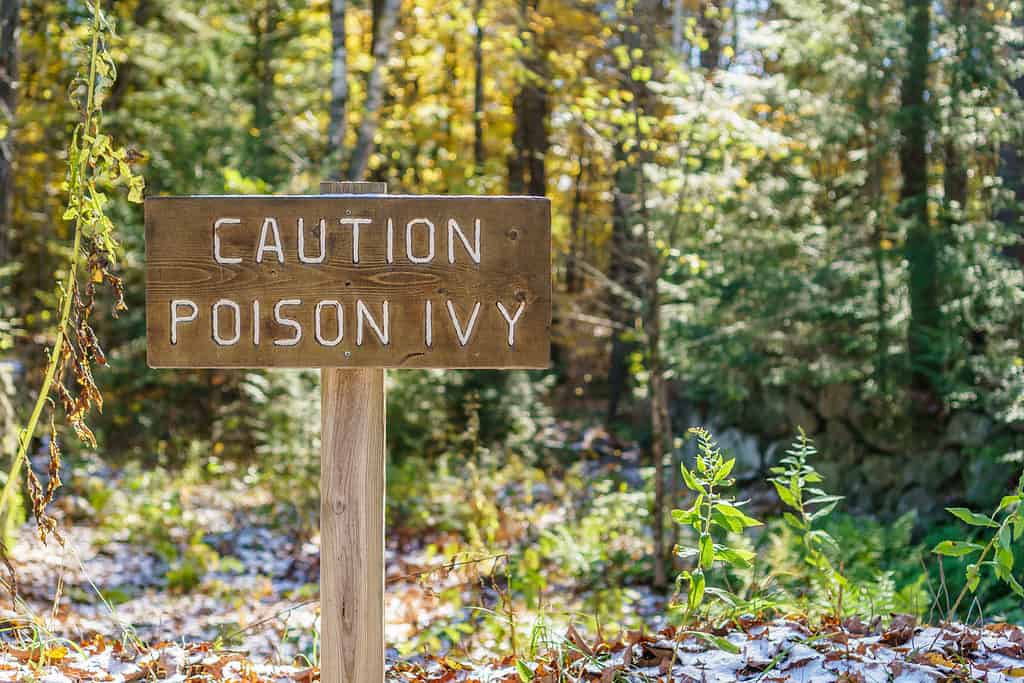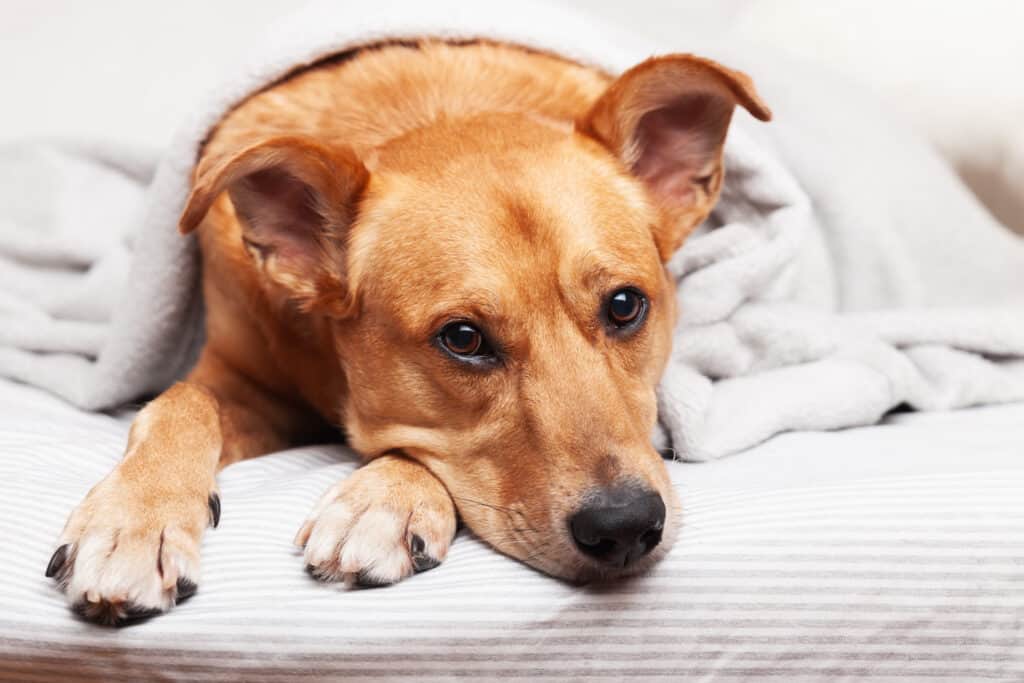Poison ivy is common in people who spend their time outdoors, especially children who may not know how to identify the plant. It causes itchiness, swelling, and sometimes even blistered skin.
Given this, you may worry about your dog. After all, there’s no way to teach them how to avoid the three-leaved plants.
Luckily, it’s rare for dogs to have a reaction to poison ivy. When they do, they have similar symptoms to people–but other health problems can also cause this, so it’s best to see a vet if you have concerns. Dogs can also spread poison ivy to people, so be sure to bathe your dog if they come into contact with the plant.
In this article, we’ll talk all about poison ivy in dogs, how often they react to it, and how it’s treated.
Can Dogs Get Poison Ivy?
While dogs can react to the plant, it’s rarer than humans. Many dogs who come into contact with the plant won’t have any symptoms. According to the American Kennel Club, a suspected poison ivy reaction is more likely to be something else.
If you think your dog has poison ivy, it’s important to get them to the veterinarian rather than try at-home treatments. If it is another illness or even a parasite like mites, your dog may need medications you can’t get without a prescription.
Of course, it’s still important to keep your dog away from the plant, even though symptoms are rare. Dogs with sensitive skin, especially, may have a reaction to it. In addition, you don’t want the oils from the plant on their fur as it can affect your human family!
Are Some Breeds More Susceptible?

Dogs can spread poison ivy to people, so be sure to bathe your dog if they come into contact with the plant.
©Tim Mainiero/Shutterstock.com
There isn’t a known genetic link that makes some dogs more prone to a reaction to poison ivy. However, some traits make dogs more likely to come into contact with the plant.
This includes small dogs, whose bellies are likelier to brush against it, and dogs with thin coats. The more exposed your dog’s skin is, the more likely they’ll have a reaction, as they don’t have as much fur to protect them.
Can You Get Poison Ivy From Touching Your Dog?
Yes, and this is a risk of letting your dog come into contact with poison ivy. Even if they aren’t affected, they can carry the oils on their coat. This can make you, your family, and others who touch your dog itchy!
If your dog comes into contact with the plant, give them a bath as soon as possible to prevent it from spreading onto human skin or even to other pets!
How Can You Tell if Your Dog Has Poison Ivy?

If your dog comes into contact with poison ivy, give them a bath as soon as possible.
©iStock.com/HABesen
Many dogs get poison ivy on their stomach or feet because these are closest to the ground. However, they can also get it anywhere on their body that touches the plant. For instance, dogs who roll on the plant might have a reaction on their back.
Symptoms of a poison ivy reaction include:
- Redness
- Inflammation or swelling of the skin
- Itching
- Blisters
- Vomiting
- Diarrhea
Even more rarely, your dog might experience a severe allergic reaction called anaphylactic shock or anaphylaxis. If they have trouble breathing, swelling in the face, or drool excessively, call an emergency veterinary clinic for help.
How is a Reaction in Dogs Treated?

Most dogs get poison ivy on their stomach or feet because these are closest to the ground.
©Photo-Vista.de/Shutterstock.com
Giving your dog a bath with an oatmeal dog shampoo can help to alleviate some of their symptoms and remove the oils so that it doesn’t continue to irritate them or spread to others in the household.
Next, you should call your veterinarian for help.
Your vet will likely rule out other conditions and ask if you saw your dog make contact with poison ivy. If you didn’t, it’s just as likely that they have another allergy, mites, or other health condition causing their skin problems.
Once poison ivy is confirmed and your dog is clean, the only thing you can do is manage their symptoms until they go away. This might include stopping them from itching the area by putting them in a dog onesie, for instance.
What Happens if Your Dog Licks the Plant?

Once poison ivy is confirmed and your
dog is clean
, the only thing you can do is manage their symptoms until they go away.
©Prystai/Shutterstock.com
If your dog licks the plant, it may develop the stomach issues listed above. The vomiting and diarrhea should pass relatively quickly.
After a couple of days, call your vet if your dog is still showing symptoms, as they may have a more serious problem.
Also, call a veterinarian or pet poison hotline if your dog eats a lot of poison ivy. They might recommend bringing them in for treatment.
Lastly, if your dog has a severe reaction to the the plant, such as swelling in the face or difficulty breathing, call your nearest emergency vet clinic right away.
The photo featured at the top of this post is © Tim R7/Shutterstock.com
Thank you for reading! Have some feedback for us? Contact the AZ Animals editorial team.







